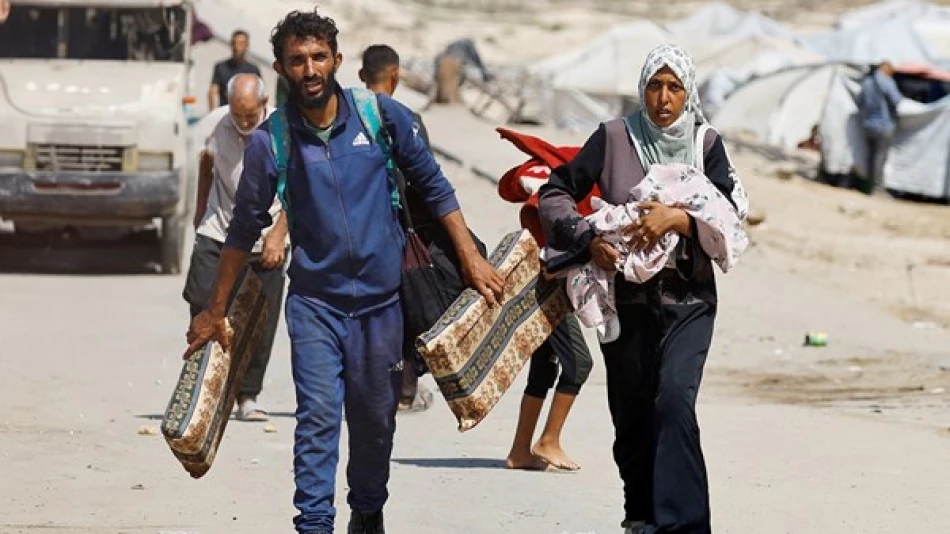
Gaza Plan's Phase 1 Execution Sees Flurry of High-Level Negotiations
Mediators are holding intensive talks to start implementing the first phase of President Donald Trump's plan to end the Israeli war on Gaza. The discussions focus on setting a precise timeline for halting all military operations, stopping Israeli air activity, and withdrawing Israeli forces from populated areas so Palestinian factions can begin releasing Israeli hostages.
Cairo is hosting crucial four-way talks today involving Egypt, Qatar, the United States, and Israel. The meeting aims to establish clear foundations for implementing Trump's plan, which includes a ceasefire and prisoner exchange. Under the proposed deal, Hamas would release Israeli hostages while Israel frees 250 Palestinian prisoners serving life sentences and 1,700 Gaza detainees held since the war began in October 2023.
Steve Witkoff, Trump's special Middle East envoy, and Jared Kushner, Trump's son-in-law, will attend the Cairo meeting according to a White House official. They'll work on technical details for the hostage release and discuss permanent peace arrangements. Egyptian and Qatari mediators will facilitate indirect talks between Israeli negotiators and Hamas representatives.
But the fighting continues. Israeli forces killed dozens of Palestinians in ongoing attacks across Gaza yesterday. An Israeli military spokesperson warned that northern Gaza remains a dangerous combat zone and told residents not to return north or approach Israeli military positions anywhere in the strip.
Experts view Hamas's acceptance of Trump's initiative as a significant political shift, though they caution it doesn't necessarily signal a new era of peace. The move reflects complex battlefield and political calculations by all sides.
Jordanian strategic analyst Dr. Amer Sabaileh says Trump sees this through his own lens - getting hostages out and stopping the war. But Hamas hasn't fully agreed to everything Trump proposed earlier, so technical problems will likely emerge later. Trump is banking on Hamas's positive response regarding hostages to position himself as a peace enforcer.
Palestinian political science professor Dr. Tayseer Abu Jumaa believes the most important thing Trump's plan can achieve right now is stopping the fighting and reducing Gaza residents' humanitarian suffering. He warns there could be bumps ahead, especially around Israeli withdrawal or demands that Hamas surrender weapons or remove its leadership.
From Washington, international affairs researcher Irina Tsukerman sees Trump's acceptance of Hamas's statement as both a political calculation and strategic gamble. By treating the statement as credible commitment, Trump wants to project himself as a decisive peacemaker who can force adversaries to concede through pressure and deal-making.
Political analyst Nourhan Sharara considers Hamas's agreement a forced move driven by humanitarian and political circumstances, not a strategic shift. After nearly two years of war, thousands of casualties, and infrastructure destruction, the movement had little choice but to show flexibility to avoid bearing sole responsibility for continued bloodshed.
Egyptian political science professor Dr. Haitham Omran argues Trump's acceptance isn't emotional or humanitarian, but a calculated pragmatic step reflecting belated American recognition that complete military victory in Gaza is impossible. Gaza has become a source of political and moral exhaustion as international anger grows over scenes of destruction and civilian casualties. Trump wants to reposition himself as a peace-capable leader and prove Washington can still control Middle East dynamics.
Most Viewed News

 Layla Al Mansoori
Layla Al Mansoori






